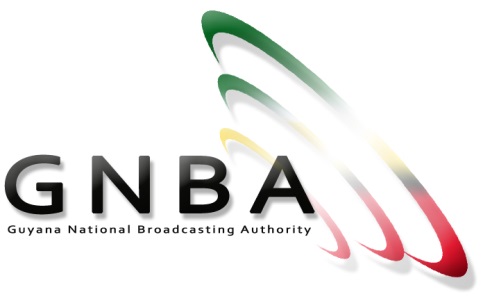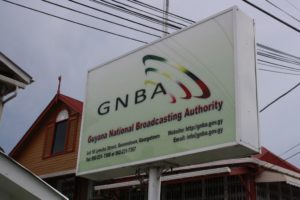Broadcast Bill passed
THE National Assembly Friday night passed the Broadcast Amendment Bill aimed at shaking up the industry here, which the government said was handed out to friends and cronies of the previous administration.
The Broadcast (Amendment) Bill 2017 was piloted by Prime Minister Moses Nagamootoo, who has ministerial responsibility for public information. Staunch resistance from the political opposition proved futile after more than eight hours of legal, moral and sentimental debates emerging from both sides of the House.
The 2011 Act was introduced by the then PPP government. Section 18 (1) (i) of the Act states that the Guyana Broadcasting Authority, which regulates local broadcasting, shall require operators to carry public service announcements free of charge. The Act further states that the Broadcasting Authority shall: “Require licensees to carry a certain percentage of public service broadcast or development support broadcasts as public information deems appropriate as a public service at no cost.”
The Act did not put a cap on how long or how frequently such announcements were to be aired. This was left up to the discretion of the government. However, one of the amendments seeks to rectify this by putting a daily cap of up to one hour on the broadcast time for public service announcements. This has since been rejected by several private operators who contend that it is an imposition on their air time.
Defending this particular amendment was Minister of Public Telecommunications, Cathy Hughes, who shared with the august body that sister CARICOM country, Trinidad and Tobago has similar legislation which requires up to two hours air time for PSAs. In addition, those two hours of programming are not to be interrupted by commercials. The amendment to the Guyana Act does not have such a provision.
The minister contended that this one-hour requirement should be looked as “giving back” to the people of Guyana who own the airwaves. Using the 2005 floods in Guyana as a case in reference, she offered that even the state broadcaster, the National Communications Network (NCN) was not among the first entities to provide information during the crisis.
The Public Telecommunications Minister, who was trained in broadcasting, contended that: “There are insufficient public service announcements in Guyana and this is an opportunity for private broadcasters to produce such materials.” She said that what the government is aiming to do is build citizens that are informed to deal with the challenges that will come their way.
However, Opposition Member of Parliament (MP) Clement Rohee disagreed. “I believe the bill has strategic political objectives,” Rohee said, adding that the amendments provide clarity in “exposing the intention of the government,” and the direction it intends to proceed with regard to press freedom.
With Prime Minister Nagamootoo describing the bill as “revolutionary and progressive,” the PPP MP said this description goes counter to the content of the amendments. Rohee closed by offering that he could not support such a bill which seeks to “oppress” broadcasters and Guyanese.
Supporting her colleague was opposition Chief Whip, Gail Teixeira, who called for the bill to be put on pause in keeping with the views of some broadcasters. Teixeira described the bill as being “reckless, undemocratic in content, and [an] infringement on the rights of people.” She said that the changes the bill proposes are “unwise,” and referenced a speech made by now government MP, Joseph Harmon, who had said in 2014, while in opposition, that PSAs should not undermine the financial viability of broadcasters. With Minister of State previously expressing support of the bill, Teixeira asked him: “What has changed so drastically in three years?” in obvious reference to her contention that the bill undermines the financial viability of operators. Sentimental in tone, she asked for the bill to be “paused” and for the prime minister to meet with operators to discuss this issue before moving ahead with it.
But it was the prime minister who would have the final say in the debate before the bill was passed. He immediately sought to refute claims by opposition MP Anil Nandlall that consultations were not held before the amendments were proposed. PM Nagamootoo clarified that consultations were held in 2011. He responded to claims by Nandlall too, that those amendments will likely land the government in court. “To say that these amendments violate the law, is unmeritorious. If there are valid contentions to engage the attention of the judiciary, then the judiciary should adjudicate on such matters” PM Nagamootoo told Nandlall.
He also noted that these amendments are features which seek to “enlarge” the Act and “put flesh on it,” since the government is seeking to improve and embellish the existing law. At the end of his presentation, a government-backed 33-member vote trumped the 23 dissenting voices on the western side of the house. The Bill, which will form part of the Act after President David Granger assents to it, will also require all radio and television broadcasters to reapply for licences under the new regulations and provisions stipulated. They have 30 days within which to do so, from the day the Bill is assented to.
Source: Guyana Chronicle


